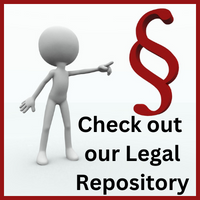Advocacy Alert: California: STOP the DHCS 63% Addiction Treatment Facility Fee Increase
May 11, 2022
via CCAPP
The staggering increase in overdose deaths related to fentanyl makes this a crucial time for intensive residential services. The proposed increase will most certainly cause smaller programs to close. We cannot afford to lose even one residential program!
CCAPP will be attending the Senate budget hearing tomorrow to oppose this damaging hike in fees.
YOU CAN HELP!
If you have the time and would like to express your opposition, we ask that you follow the below instructions to call in. Or, if you personally cannot make the time, you may ask someone to call in on your behalf.
The hearing is tomorrow, May 12, 2022, beginning at 9:30 am, and public comment is expected between 11:00 am and 2:00 pm. Public comment will be at the end of the hearing. If you would like to be alerted by text or email 15 minutes prior to public comment, send a request to communications@ccapp.us.
Public Testimony Toll-Free Number: 877-226-8163
Access Code: 7362833
Dial "10" to enter the queue for testimony. An operator will give you a line number and you will be on mute until your line number is called.
When the operator calls your number during public comment, use the below script for your testimony.
Script:
"Hello my name is [your name]. I am the [your title] calling on behalf of [organization you represent] in opposition to Item 4: Residential and Outpatient Licensing Fund (ROPLF) Fee Increase. Save beds, save lives, oppose item 4. Instead of increasing licensing fees for residential treatment programs I ask that you support the ROPLF backfill request Thank you!"
Do not give any other testimony! That will annoy the committee. Just Your name, title, organization, and opposition.
They claim this:
Revenue Adjustment -- April Finance Letter. DHCS requests an increase in substance use disorder residential licensure and certification fees of approximately 63 percent, effective July 1, 2022. If approved, this fee increase would support ongoing deficiencies in the Residential and Outpatient Licensing Fund (ROPLF) due to impacts of the COVID-19 pandemic and implementation of monitoring of recovery and treatment facilities pursuant to AB 1158 (Petrie-Norris), Chapter 443, Statutes of 2021.
Background:
DHCS is responsible for the licensing and certification of residential and outpatient recovery and treatment programs in California. Licensing and certification fees levied on program facilities are deposited in the Residential and Outpatient Licensing Fund (ROPLF) to support and maintain the resources necessary for oversight by DHCS. According to DHCS, oversight activities include review and processing of initial and extension applications; initial and biennial onsite monitoring; complaint investigations; administrative support; disseminating information to the public; policy, regulatory, and statutory development; provider training and technical assistance; and appeal processing for revocation or suspension of provider licensure or certification or for assessment of civil penalties.
AB 1158 (Petrie-Norris), Chapter 443, Statutes of 2021, requires a licensee operating an alcoholism or drug abuse (AOD) recovery or treatment facility and serving more than six residents to maintain specified insurance coverages, including, among others, commercial general liability insurance and employer’s liability insurance. AB 1158 requires a licensee that serves six or fewer residents to maintain general liability insurance coverage. The Governor’s January budget included four positions and expenditure authority from the ROPLF of $626,000 in 2022-23 and $590,000 annually thereafter to address the increased workload related to the implementation of AB 1158, including monitoring insurance coverage of covered facilities. In its January budget request, DHCS indicated expenditures from the ROPLF would exceed revenues if the request were approved and a fee increase would be necessary to address the fund’s deficiency.
DHCS requests an increase in substance use disorder residential licensure and certification fees of approximately 63 percent, effective July 1, 2022. According to DHCS, this would increase licensing fees from $4,068 to $6,631 and would align revenues with expected 2022-23 expenditures from the ROPLF of $9.4 million.
Questions? Concerns?
As always, we want your input. What topics would you like to see us cover in future Advocacy Alerts?
Did you know BHAP members get regular access to our advocate in Washington, DC? If you have any questions about BHAP's advocacy efforts, please contact us.

A national membership association that provides education and advocacy for those in the behavioral health and addiction treatment industries.
We are the leading and unifying voice of addiction-focused treatment programs.



